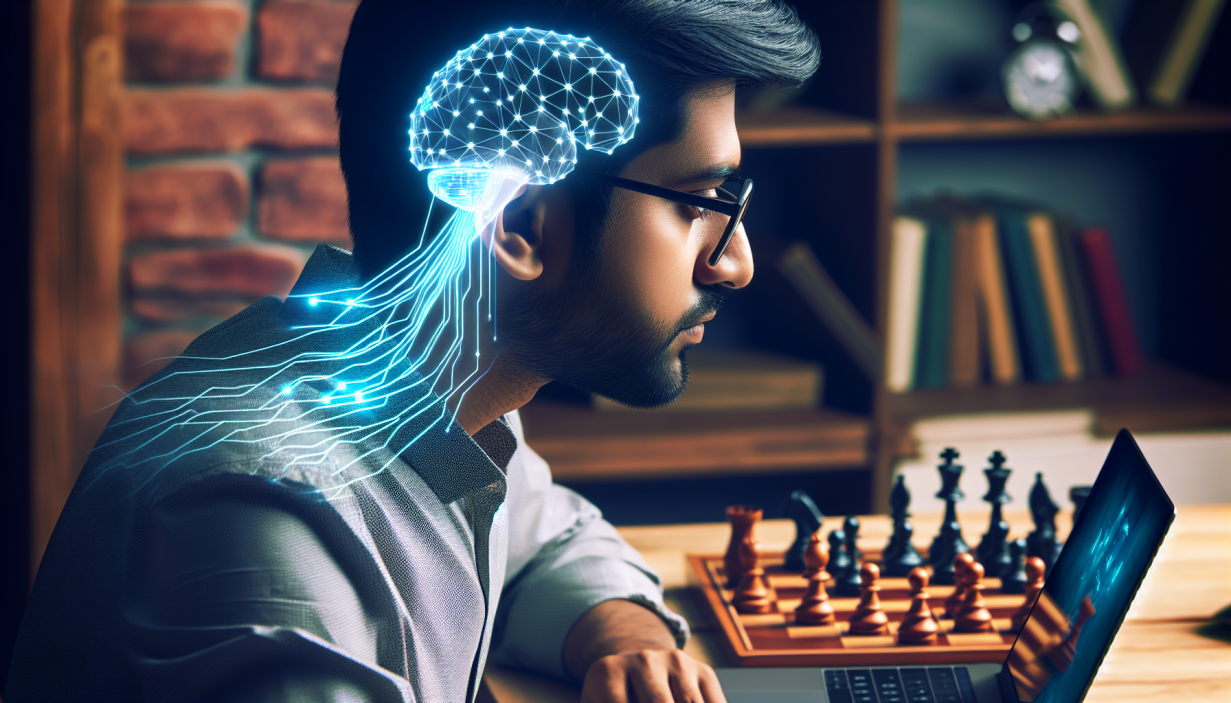First Brain Chip Patient Controls Computer Cursor with His Thoughts
The Neuralink enables Noland Arbaugh to play chess and do many other things with computers
March 21, 2024 02:49 PM
Reading time: 1 minute, 49 seconds
TL;DR Elon Musk's Neuralink has achieved a breakthrough by showcasing its first patient, Noland Arbaugh, who uses a brain implant to play online chess. Thanks to Neuralink's technology, Arbaugh, who was paralyzed from a diving accident, can now control a computer cursor with his thoughts.

In a groundbreaking event streamed live, Elon Musk's Neuralink introduced the world to a future where the human brain can directly interface with computers. Noland Arbaugh, a 29-year-old who was paralyzed below the shoulders, demonstrated this by playing chess online using nothing but his mind.
This achievement marks a significant milestone in Neuralink's mission to merge humans with artificial intelligence.
The Journey of Noland Arbaugh
Arbaugh's life changed dramatically after a diving accident left him paralyzed. However, his story took an extraordinary turn when he received Neuralink's brain chip implant in January.
The device, implanted in his brain, translates his neural activity into computer commands, allowing him to control a cursor on his laptop. "The surgery was super easy," Arbaugh remarked about the process, highlighting the user-friendly aspect of this futuristic technology.
Neuralink's Vision
Elon Musk, the visionary behind Neuralink, envisions a world where humans can overcome physical limitations and enhance cognitive capabilities through brain implants. This demonstration of Arbaugh playing chess is not just a technical achievement but a glimmer of hope for millions with disabilities.
Musk previously stated that the goal is for people to control computers and play games simply by thinking, and this event has turned that vision into a reality.
Beyond Gaming
While playing chess with the mind is an impressive feat, Neuralink's technology promises much more. It opens the door to revolutionary treatments for neurological disorders, paralysis, and even the enhancement of cognitive functions.
The potential applications of this technology could redefine what it means to be human, offering unprecedented ways to interact with the digital world.
Ethical Considerations
As with any breakthrough in technology, Neuralink's advancements raise ethical questions. Concerns about privacy, security, and the long-term implications of brain-computer interfaces are being debated.
As this technology develops, it will be crucial to address these issues to ensure that the benefits outweigh the risks.
In conclusion, Neuralink's demonstration with Noland Arbaugh playing chess using his thoughts alone is a window into a future where the boundaries between humans and machines blur.
This event not only highlights the potential of brain-computer interfaces but also sets the stage for a broader discussion about the future of humanity itself.



